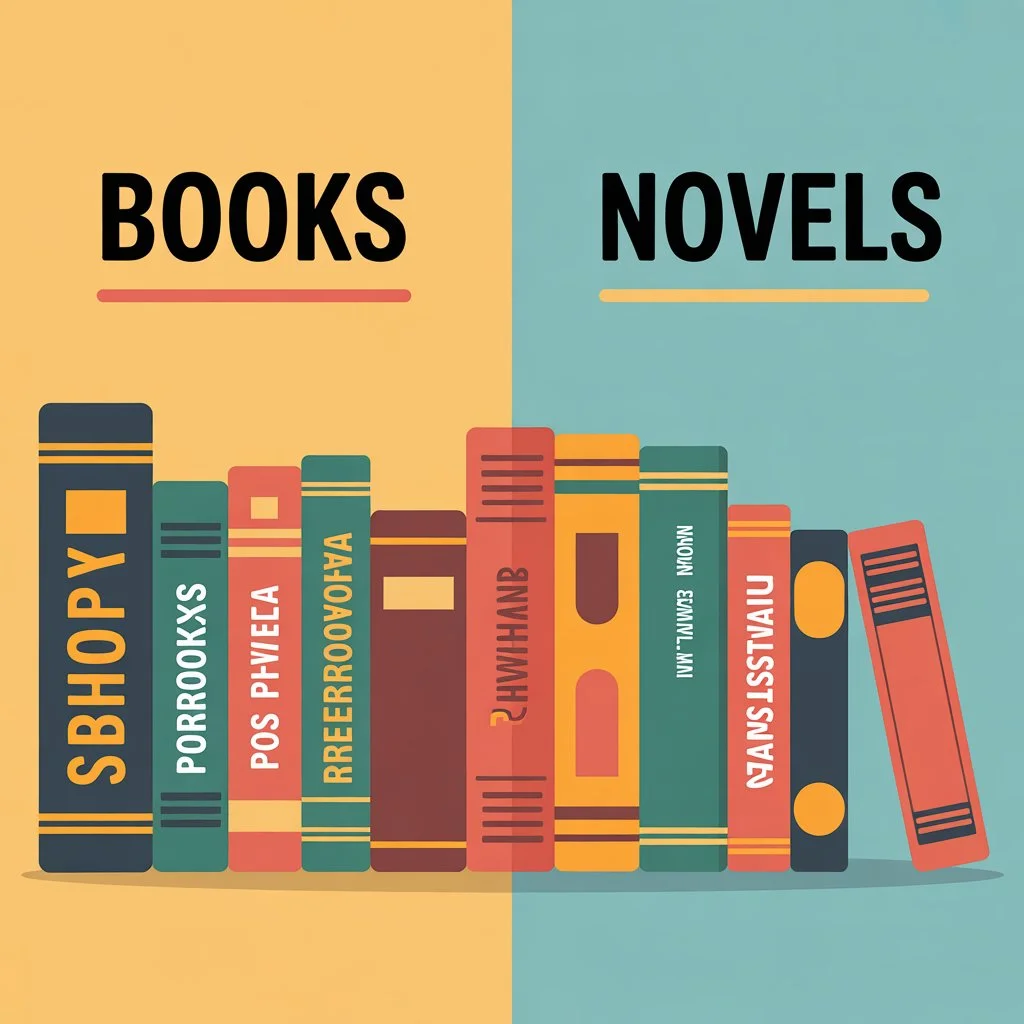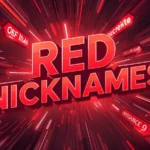Introduction
When you hear the words “books” and “novels,” they might sound like the same thing—but they are not. People often search “books or novels” when they want clarity. Are novels just another word for books, or do they mean something more specific? This confusion usually appears among students, writers, readers, or anyone trying to use the right word in essays, blogs, or professional writing.
The truth is: all novels are books, but not all books are novels. A “book” is a general term for any written work bound together. A “novel” is a specific type of book—usually a long story of fiction. This article clears up the differences, explains origins, and shows when to use each term correctly.
Books or Novels – Quick Answer
- Book: A collection of written, printed, or digital pages. Can be fiction, non-fiction, textbooks, biographies, or poetry.
- Novel: A long, fictional narrative written in prose, typically over 40,000 words.
👉 Example:
- Harry Potter = a novel (fiction, story).
- Oxford English Dictionary = a book (non-fiction, reference).
The Origin of Books or Novels
- Book: From Old English bōc, meaning “written document.” Root word linked to “beech tree,” since early writing was carved on wood.
- Novel: From Italian novella, meaning “new story.” It spread through Europe in the 15th century to describe fictional prose.
So while book is a broad word with ancient roots, novel developed later as a literary form.
British English vs American English Spelling
Interestingly, the spelling of “books” and “novels” does not change between British English and American English. Both follow the same rules. What changes is the preference in use.
- British English: Often uses “novel” more formally when talking about fiction.
- American English: “Book” is used casually, even when referring to novels.
Comparison Table
| Term | British English Use | American English Use | Example Sentence |
|---|---|---|---|
| Book | General, formal & casual | General, formal & casual | “I bought a book on history.” |
| Novel | Formal, specific to fiction | Common, but sometimes replaced with “book” | “She is reading a mystery novel.” |
Which Spelling Should You Use?
Since both spellings are the same, the choice depends on audience and context:
- US readers: You can say “book” in casual talk, “novel” in literary contexts.
- UK/Commonwealth readers: “Novel” is more formal; “book” works in all contexts.
- Global audience: Use book for general meaning, novel for fiction writing.
Common Mistakes with Books or Novels
- ❌ “I bought a novel on chemistry.” → Correction: “I bought a book on chemistry.” (It’s not fiction.)
- ❌ “My favorite book is Pride and Prejudice.” → Technically correct, but better: “My favorite novel is Pride and Prejudice.”
- Confusing short stories with novels → A short story is not a novel because of its length.
Books or Novels in Everyday Examples
- Email: “Attached is my favorite book list” (general).
- News: “The author’s latest novel became a bestseller overnight.”
- Social Media: “Currently reading this amazing novel.”
- Formal Writing: “This book provides insights into 20th-century politics.”
Books or Novels – Google Trends & Usage Data
According to Google Trends:
- “Books” is searched far more globally because it covers all genres and types.
- “Novels” is searched mostly in literary and academic contexts.
| Country | “Books” Popularity | “Novels” Popularity |
|---|---|---|
| USA | High | Medium |
| UK | High | High |
| India | Very High | High |
| Australia | High | Medium |
FAQs about Books or Novels
Q1. Are novels always fiction?
Yes, novels are long fictional stories. Non-fiction books are not novels.
Q2. Can every book be called a novel?
No. Only fictional prose stories qualify as novels.
Q3. Is a novel longer than a short story?
Yes. Novels usually exceed 40,000 words, while short stories are shorter.
Q4. Can I say “my favorite book is a novel”?
Yes. All novels are books, but specifying “novel” is clearer.
Q5. What about novellas?
A novella is shorter than a novel but longer than a short story.
Q6. Do eBooks count as books?
Yes. Digital formats are still books. If fiction, they can also be novels.
Q7. Which word should I use in essays?
Use “novel” for fiction, “book” for general works.
Conclusion
The question “books or novels” is about understanding scope. A book is the general container of written work—whether fiction, non-fiction, or reference. A novel is a specific type of book: a long, fictional story told in prose. Knowing this difference helps you use the correct term in school essays, business writing, publishing, and casual talk.
For global audiences, use “book” when speaking broadly and “novel” when discussing fiction. This ensures your writing stays accurate, professional, and easy to understand.


